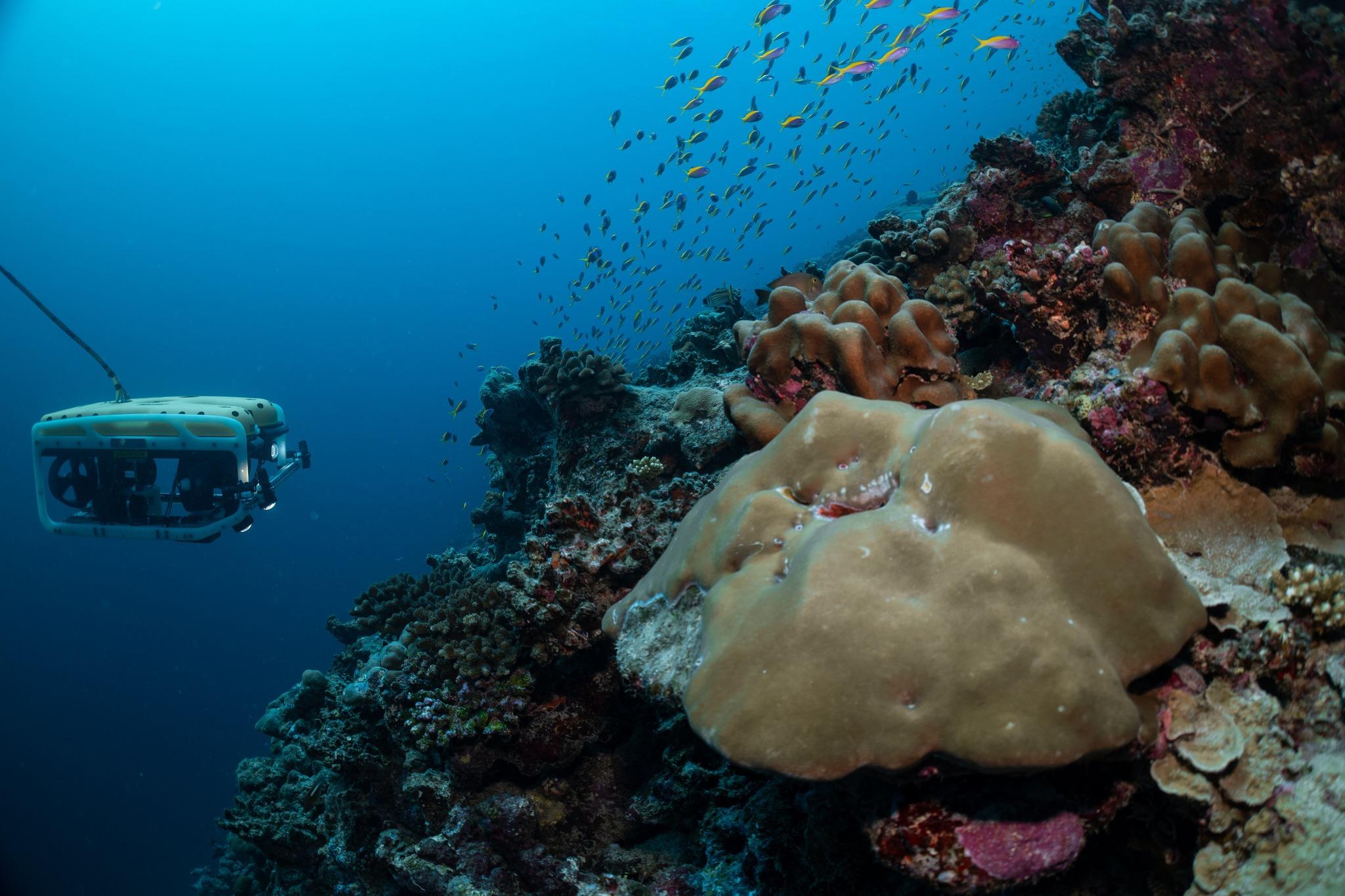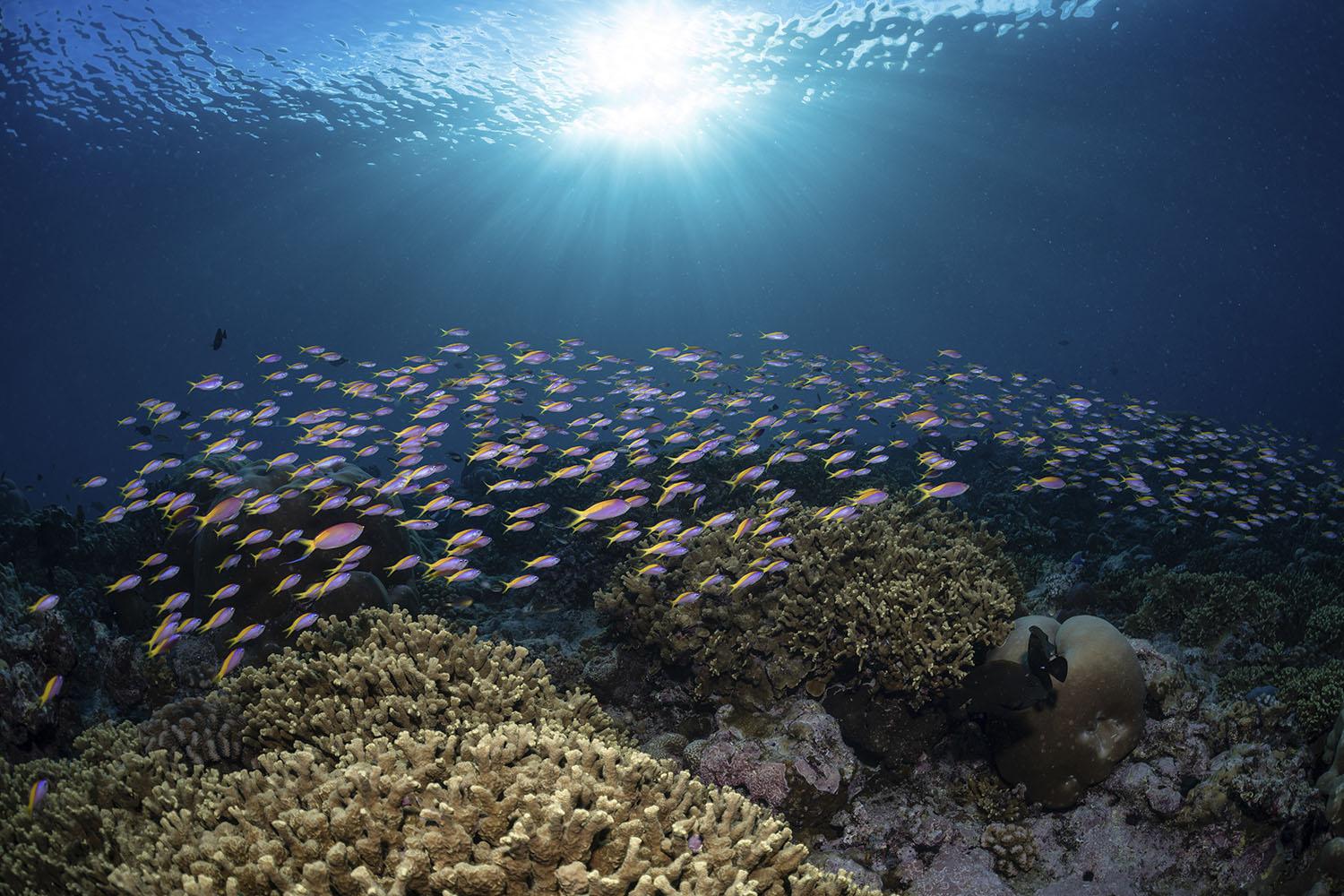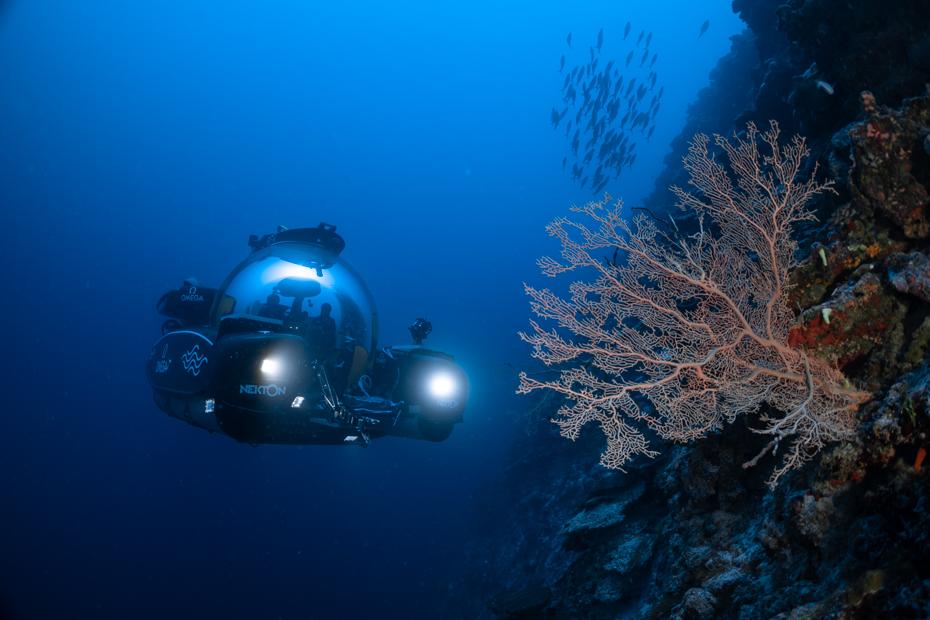Navigating uncharted depths: The project that aims to unveil the hidden wonders of the Ocean

The launch of Ocean Census, the world’s largest survey of life beneath the waves, recently made headlines around the world. David Shukman, a member of the Smith School Advisory Board, explains why the project is so urgent.
Imagine if the only way to explore a rainforest was to float above it in a hot air balloon while lowering a bucket down through the canopy in the hope of gathering a few leaves or insects. It would scarcely touch the myriad different organisms living among the trees, let alone illuminate the intricate connections between them. And the functioning of the forest and its benefits to the rest of the planet - these too would remain unknown.
That’s very roughly the equivalent of our understanding of much of the ocean. It’s become a tiresome cliché to say we know more about the Moon - tiresome because the Moon obviously isn’t obscured by an opaque body of water several miles thick. What is true is that even though the ocean covers some 70% of the Earth’s surface, it’s a realm that’s still largely hidden. Despite producing about half of the oxygen we breathe, storing a lot of the carbon we emit and providing food for billions, it’s proved too deep, remote and expensive to investigate comprehensively.

And that creates a risk: that long before we can properly understand the ocean and all that lives in it, human activities will have wiped out much of what’s most precious. Over-fishing is having a catastrophic impact. So are our carbon emissions which are not only heating the waters but also making them more acidic. Add to that the effects of plastic pollution and toxic effluent - together with the prospect of mining the ocean floor for minerals - and the rate of extinctions is bound to accelerate.
Some 240,000 marine species have been identified so far - which sounds impressive. But it’s estimated that the total of species living underwater may be 2.2 million, perhaps more - and we have no idea of their role or value. Might they be vital for the global carbon cycle? Or could their evolutionary pathways, stretching over far longer periods than those on land, have created chemicals that could transform medicine? Marine organisms have already led to 13 licensed drugs for cancer, Covid-19, HIV and pain relief, and several hundred are in the pipeline.
The task of identifying new species is partly a problem of funding and logistics - it’s extremely costly mounting long expeditions in distant parts of the globe. But there’s also the slow process of taxonomy, of studying specimens and confirming discoveries. About 2,400 marine species are currently described every year - which, astonishingly, is not much faster than the speed achieved in the 1870s during a pioneering research mission by HMS Challenger.
Ocean Census, led by the Oxford-based research institute Nekton and The Nippon Foundation, hopes to change that. One key principle is to create a network of scientific, philanthropic and business partners to operate worldwide - from the shallows to the depths and including researchers and citizen scientists from many of the areas of the ocean under greatest pressure, particularly in the Global South.

Another principle is to harness the latest technologies from genetic analysis to machine learning. The aim is to build up an open catalogue of genomes so that it’s far easier and quicker than now to establish whether a particular species really is new to science. Instead of taking years or even decades to confirm a discovery, the aim is to get results in a matter of months. And the scientists involved have in mind the audacious goal of finding 100,000 new species over the next decade.
This isn’t the first venture to map the diversity and richness of marine biology. But it is set to be the largest attempt of its kind. The team coordinating the effort wants to engage the public, to share the thrill of exploration and to support its purpose: to join a race against time to find as many forms of life as possible before we lose them.
Community Insights series
David Shukman is a member of the Smith School's advisory board. He was the BBC’s first Science Editor and led its climate coverage for nearly twenty years, pioneering live broadcasting from the Arctic and the Amazon. A consultant, speaker and broadcaster, David is a Visiting Professor in Practice at the Grantham Research Institute at the LSE.
The Smith School's Community Insights series features up-to-the-minute and incisive commentary from leading voices outside of academia, including from our Board, business fellows and partners.
